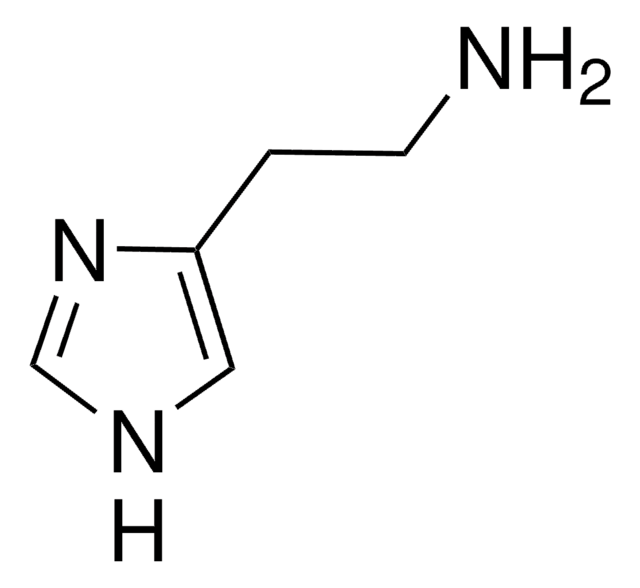49761
Spermidine
analytical standard
Sinónimos:
1,8-Diamino-4-azaoctane, N-(3-Aminopropyl)-1,4-diaminobutane
About This Item
Productos recomendados
grade
analytical standard
Quality Level
assay
≥97.5% (NT)
≥99.0% (GC)
shelf life
limited shelf life, expiry date on the label
technique(s)
HPLC: suitable
gas chromatography (GC): suitable
refractive index
n20/D 1.479 (lit.)
density
0.925 g/mL at 25 °C (lit.)
application(s)
cleaning products
cosmetics
food and beverages
personal care
format
neat
storage temp.
2-8°C
SMILES string
NCCCCNCCCN
InChI
1S/C7H19N3/c8-4-1-2-6-10-7-3-5-9/h10H,1-9H2
InChI key
ATHGHQPFGPMSJY-UHFFFAOYSA-N
¿Está buscando productos similares? Visita Guía de comparación de productos
Categorías relacionadas
General description
Application
Biochem/physiol Actions
Packaging
Caution
signalword
Danger
hcodes
Hazard Classifications
Eye Dam. 1 - Skin Corr. 1B
Storage Class
8A - Combustible corrosive hazardous materials
wgk_germany
WGK 3
flash_point_f
233.6 °F - closed cup
flash_point_c
112 °C - closed cup
Elija entre una de las versiones más recientes:
¿Ya tiene este producto?
Encuentre la documentación para los productos que ha comprado recientemente en la Biblioteca de documentos.
Los clientes también vieron
Protocolos
HPLC Analysis of Biogenic Amines on Ascentis® RP-Amide
Nuestro equipo de científicos tiene experiencia en todas las áreas de investigación: Ciencias de la vida, Ciencia de los materiales, Síntesis química, Cromatografía, Analítica y muchas otras.
Póngase en contacto con el Servicio técnico











